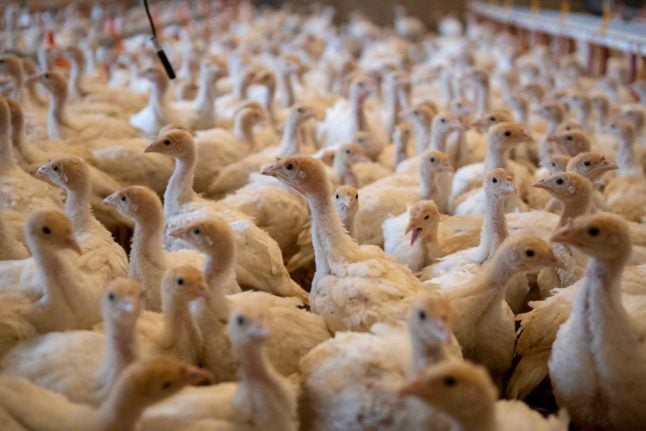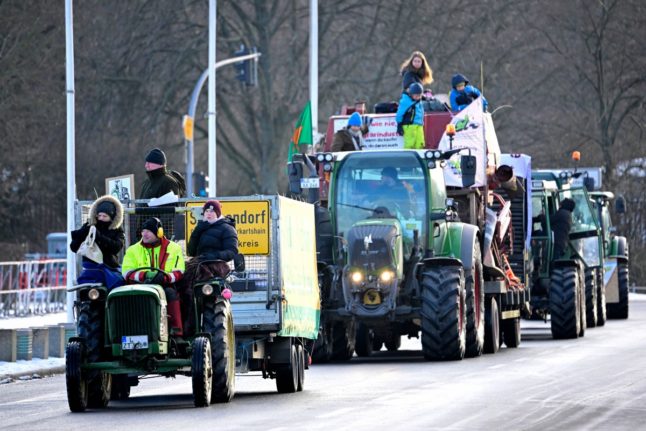As Katharina and Reinhard Bauer show off cosseted turkey chicks they highlight standards that they — and the Austrian government — would like the rest of the EU to adopt as well.
“On our farm the birds have lots of space,” Katharina explains on the organic farm the pair run together in Weibern, northern Austria.
They stress how delicate the business of raising turkey chicks is given their fragile state immediately after hatching. According to Reinhard they're “very sensitive, curious and affectionate”.
The couple says the birds, brought to Europe from the Americas by Spanish colonists in the 16th Century, must be raised in an environment as close to nature as possible to be fit for Christmas tables.
It's a view shared by the Austrian government, which is aiming to get EU partners on board in raising standards for turkey farming across the bloc.
Agriculture Minister Elisabeth Koestinger recently boasted that “the 'World Animal Protection' organisation has put Austria in first place in its animal welfare rankings, in comparison with 50 countries worldwide.”
In November Green Austrian MEP Sarah Wiener launched a petition, backed by the government, calling for sector regulations at the European level in line with Austrian practices.
Human scale
After chickens and pigs, turkeys are the third most commonly reared animal in the EU, with around 190 million slaughtered annually.
But while the 27-member bloc has set rules and minimum standards for raising chickens and pigs, there is no such set of requirements for turkeys.
Austria's roughly 120 turkey farms are by and large organised on a more human scale than larger operations found in Germany, Poland or Hungary.
Mostly family-run, Austria's farms are subject to regular inspections and usually contain no more than 6,000 birds.
With an average of two adult males per square metre, the density they are raised in is the lowest in Europe.
Even on farms with comparatively lower standards, chicks can move freely in daylight and enjoy beds of straw or wood shavings.
Those on farms on the next higher rung have winter gardens, and on organic farms they are raised in the open air.
Better conditions come at a price, however.
An average package of Austrian turkey costs 14 euros ($17), as opposed to eight euros for imported equivalents.
As a result, domestic turkey only represents 40 percent of total sales in Austria.
“I would be in favour of all of Europe seeing to it that animals have good conditions,” Katharina says as she gazes at her chirruping chicks.
And the push for higher standards has been taken on by some distributors too.
A few months ago, a major supermarket chain said it would only sell meat raised and slaughtered within Austria. It set a flat price of 10 euros per turkey breast, without cutting what it paid farmers.
A fair price
Whether or not the petition pushing for stricter EU regulations succeeds, the conservative-green Austrian coalition government has plans to increase the number of organic turkey producers by subsidising up to 35 percent of the required investments.
Increasing standards “is the absolute priority for our farmers,” says Georg Strasser from Austria's Chamber of Agriculture, stressing that animal welfare is a public health concern.
The use of antibiotics on Austrian turkey farms has fallen by 55 percent between 2011 and 2017, and animal welfare association Vier Pfoten is encouraged by the efforts being made.
“Guaranteeing a fair price for farmers who respect the animals is the key to achieving change,” director Eva Rosenberg says.
The Bauers would not doubt heartily agree — having just upgraded their facilities to provide their flock with supplemental creature comforts.



 Please whitelist us to continue reading.
Please whitelist us to continue reading.
Member comments